Why Neurodivergent People Need Honest Friends
What West African philosophy and my grandmother taught me about self-awareness, blind spots, and choosing relationships
What Are Blind Spots in Neurodivergent Relationships?
“My grandmother taught me there’s a difference between friends and advisors. Not all friends are advisors—but some friends hold both roles. It’s important to know which is which, and treat them accordingly.”
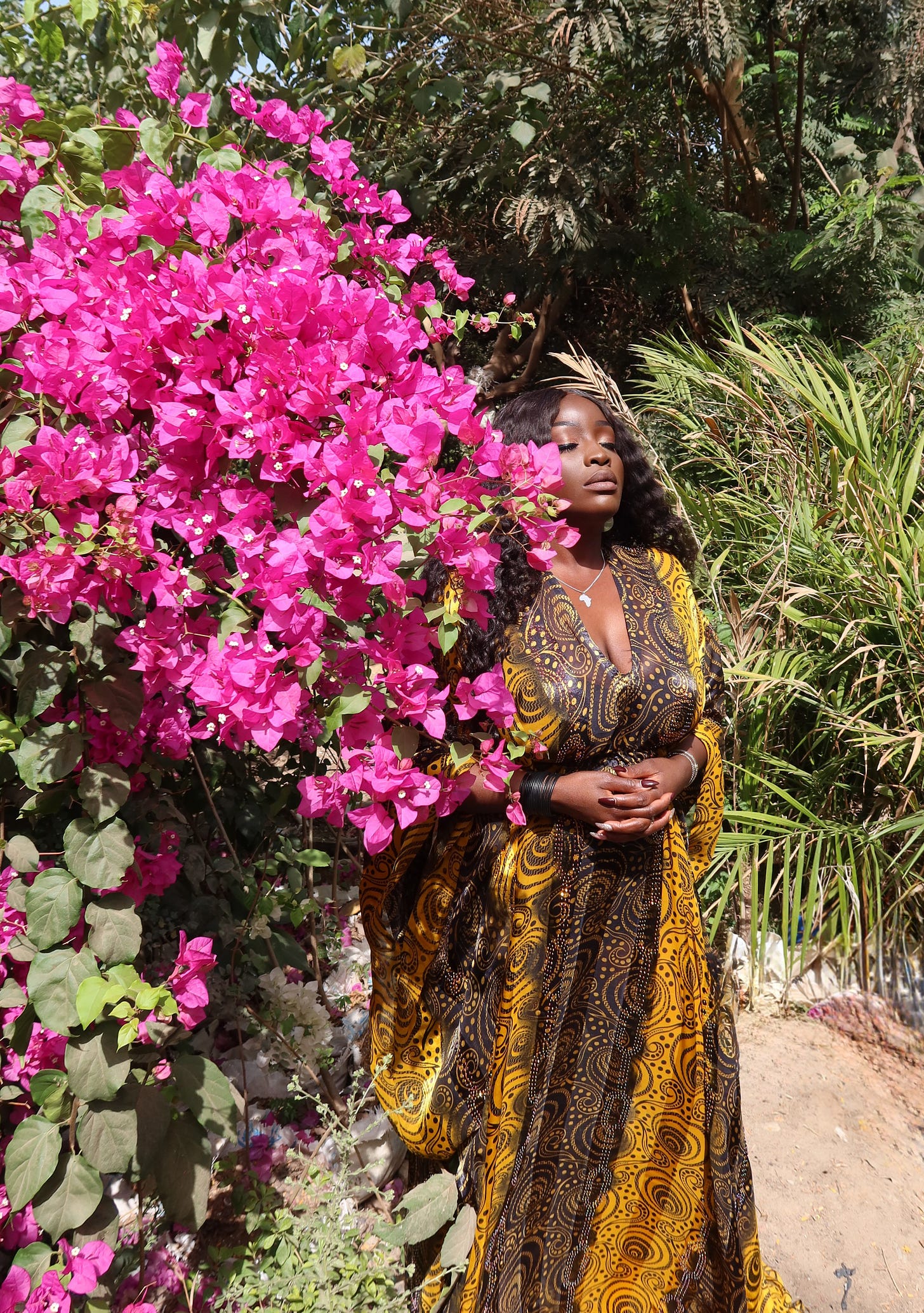
I grew up hyperlexic, I read before I could walk, consuming books faster than most people could finish chapters. But speed is not clarity. My grandmother saw this early. After watching me breeze through eight books in two days, she asked, “But did the words read you back?” I had no answer. She knew I saw clearly outward, but inward? Not so much.
She was teaching me about blind spots—the things about ourselves we’re too close to see. For neurodivergent people like me, relationships are often the sharpest mirrors. They expose our hidden edges: unspoken needs, missed social cues, vulnerabilities we didn’t even know we carried.
Relationship difficulties are literally part of diagnostic criteria for many neurodivergent conditions. The DSM-5 names challenges with social communication, reciprocity, and managing conflict. It’s not that we don’t care, it’s that we process and respond differently.
In relationships, blind spots are the silent gaps between intent and impact. It’s why you can hurt someone unintentionally, why you might repeat the same mistakes without realizing it. It’s not about intelligence; it’s about perspective. To see what you can’t, you need someone else—someone trusted enough to reflect your unseen side back to you gently.
She chose her advisors carefully. Two were her closest confidantes. One was blunt, even harsh but necessary. See my grandmother was formidable it took a lot to size her up.
This essay is about how we choose those people and it applies to all humans. But it applies to neurodivergent folks, especially those carrying relational trauma, need to be deliberate. Because for us, one of the diagnostic truths is this: relationships are often the wound, and the ones who stay can help us see what we can’t.
How West African Philosophy Names Our Four Hidden Sides
I want to dedicate this essay to my grandmother, who taught me to see what I couldn’t. And I also wrote it to dedicate to
whose words since I started reading them have reminded me why we still try to reach each other.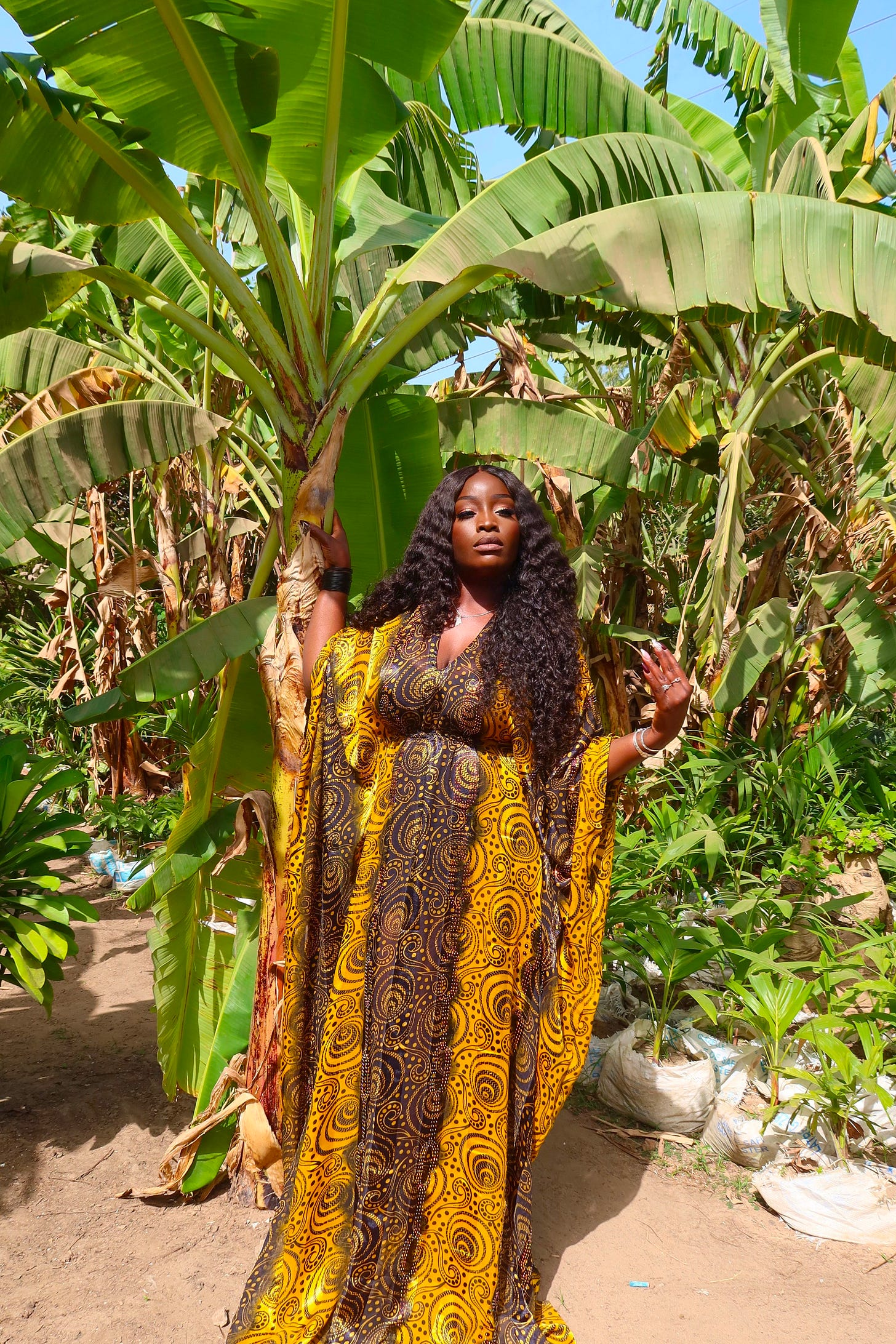
My grandmother didn’t believe people had just one self. She taught me that African philosophy understood our complexity and our contradictions. Even when people wronged her, as they often did, she would say, “We hate the behaviour, not the person.”
She said we carry four faces:
The first: the one you show everyone—your public self.
The second: the one only you know—the private truths you keep.
The third: the face others see that you don’t—your blind spots.
The fourth: the one that slips out when your mask fails—the unguarded self revealed in conflict, fear, or pain.
She didn’t just tell me this. She trained me to see it. She wouldn’t let me confuse consuming information with knowing myself—or knowing others. She made sure I understood that reading quickly isn’t intelligence if you don’t sit with what you read. That critical thinking isn’t about how many words you swallow, but how deeply you watch what’s consistent, what’s unsaid, and whether actions match words. That’s why—even with all I read—I rarely speak on a book right away. I wait. I let it show me what stays true over time.
Under our neem tree, she’d make me translate The Emperor’s New Clothes—not just from English, but into Wolof and then Fula. Languages without direct equivalents. She did it to slow my mind, to force me to sit with meaning, to notice what was really said—and what was left unsaid between the lines. She made sure the words read me back.
That lesson wasn’t just about reading. It was about relationships. About how easily we miss social cues, subtext, the silences where truth hides. How we rush, react, or jump to conclusions without slowing down to see.
That’s why you need people who don’t just mirror your words back, but help you slow down. Who show you what you missed. But not everyone can do this for you. Even kind, well-meaning friends can struggle to show you what you can’t see if they refuse to see their own blind spots.
The emperor wasn’t just a foolish king to her. He was proof of a truth our people always named clearly: your unacknowledged self will betray you. Ignoring those willing to tell you hard truths can be your downfall.
And she also taught me that intelligence is often a Western fallacy. The person you dismiss as unintelligent can end up teaching you things you never understood about yourself or the world. They can ask questions that make you see differently. And the one who seems less intelligent might be observing you carefully—learning your skills, gathering your knowledge, letting you do the labour for them because your own hubris blinds you. She taught me to detect that too.
That’s why I say no one walking this earth can show me a trait I haven’t already seen in my own family, or been prepared for by this woman who taught through our lineage and storytelling.
She taught me not to fear that fourth face, but to respect it. To choose the people who, when I can’t see it myself, will name it for me before the world uses it to shame me.
How to Choose Friends Who Want the Best for You
“Real friends hold your shadows gently but refuse to flatter you into harm.”

My grandmother was intentional about who she kept close. She chose carefully. Two of her closest friends were steady, kind, and patient. One was blunt to the point of cruel if you watched from the outside. She kept them all.
She said you don’t pick friends for comfort. You choose the ones whose goals and ethics align with yours. The ones willing to see what you can’t and tell you even if it risks your anger or triggers. Best they make you aware in safe spaces than you find out in unsafe spaces. I think this is why no one ever saw my grandmother out of character these three already tested her.
She was intentional about who she chose and all she did. When she died in December 2014, they stepped in their roles for her family. But they too died in close succession, ending a companionship that held nearly 400 years of shared wisdom and responsibility.
Understand these aren’t just any friends. They’re the ones whose intentions are clear. Who don’t lie to keep you comfortable, but keep you honest. They see the things you miss—how you speak in rooms that could open doors but instead close them, how you handle your children in ways that might harm them without knowing.
These were the people my mother would send to ask my grandmother questions she couldn’t ask herself. The ones who stepped up as parents. Like I always tell you about my role in my people’s lives—it was modelled. My grandmother had two living rooms: one for everyone, and one just for private conversations and laughter with her people.
And of course I’d sneak in there during my spare time, but that’s neither here nor there. That’s just my neurodivergence.
These people do not tell you the truth to humble you. They do it because they're invested in what you're building together. That’s why your goals have to align. But it’s not only about naming harm. Real friends will remind you of your strengths, the parts of you that you ignore or downplay. They’ll do it because your growth helps them too. The wrong friends won’t want you to see these things. They’ll keep you small because they’re afraid of your change.
Your goals have to align because your well-being is tied together. My grandmother said the people you keep close should want your success like it’s their own. If your life rises, theirs rises too. That’s why they’ll tell you the truth about your blind spots. Because your growth doesn’t threaten them. It benefits them.
When your goals and values are aligned, honesty isn’t sabotage—it’s mutual protection. They don’t let you ruin chances that would help you both. They don’t stay silent while you burn bridges that would carry you all further.
That’s why you choose them carefully. Not just for who they are, but for what you’re building together. My grandmother called this a pact of community. You choose people who, even in disagreement, won’t weaponize what they know about you. Who keep your truth safe because betrayal destroys you both. That’s how you choose the ones who stay close.

How Does Neurodivergence Affect Your Self-Awareness in Relationships?
“We don’t see everything about ourselves alone. That’s why we need the right people close.”
For many neurodivergent people, difficulties maintaining relationships aren’t just random struggles—they’re part of what gets you diagnosed in the first place. The criteria often include challenges with social cues, emotional reciprocity, or managing conflict.
It’s not that we don’t want connection. It’s that our ways of seeing, processing, and responding can clash with what’s expected, leaving us misread, misaligned, or shut out. That’s why choosing the right people—the ones who’ll help you see what you miss and meet you where you are—isn’t optional. It’s survival.
Neurodivergent people often have to work harder at self-awareness in relationships. It’s not about lacking empathy or not caring—it’s about how we process.
We can be sharp in one area and miss what’s right in front of us in another. We might read things literally, skip nuance, or react before reflecting. We can avoid conflict to keep the peace, or rush past the discomfort of harder truths.
These differences don’t make us less capable of connection, but they mean we need people willing to be honest. Friends who see our patterns when we can’t. Who help us slow down and notice what’s really being said—even the things left unsaid.
Because without that reflection, it's easy to stay unaware of how we harm others, sabotage ourselves, or repeat the same mistakes.
That’s why discernment matters so much. Not everyone can offer this kind of truth safely. You need people who do their own self-work. Who can hold up a mirror without flinching.
My grandmother taught me there’s a difference between friends and advisors. Friends might love you unconditionally. They hold space for who you are without asking you to change. Advisors are different. They love you enough to hold you accountable. They don’t accept every part of you without question. They see your blind spots and tell you because your growth matters to them too. Neurodivergent people especially need to understand this distinction.
She taught me to choose the ones who do their own self-work. The ones who can hold up a mirror without flinching because they’ve done it for themselves first.
You need both in your life. But you can’t confuse them.
Understanding Neurodiversity and Why Even NPD or ASPD Traits Can Be Valuable in Friendship
“Not every friend will be soft. Some carry NPD or ASPD traits, and their blunt honesty protects what you’d rather ignore.”
This is why I’m careful about labels. Not just diagnostic ones like NPD or ASPD, but any label we use to flatten someone—race, gender, class. Yes, we live inside social constructs. Yes, desirability politics shape how we're seen, who gets helped, who gets centered. I’ve watched people I never expected choose not to come to my aid. I’ve sat at my altar and said I see them clearly now knowing my grandmother’s lesson prepared me to understand them, and to accept what was revealed without flinching.
My grandmother didn’t choose her advisors by gender, our culture doesnt do gendered pronouns. It was varied. She chose them for their roles, their ethics, their ability to see what she couldn't. My culture taught me to watch what people do, not just what they're called or call you. Because it’s the behavior, the alignment, and the trust that make someone safe to keep close
In the West, difference often gets pathologized. Traits seen as blunt, low-empathy, or emotionally contained get labeled as disorders, NPD, ASPD. The warning is clear: avoid these people. But my research into precolonial Africa showed something different. Communities didn’t see those traits as failings to be banished. They saw them as roles to be understood and respected.
Some were protectors, strategists, truth-tellers. Blunt, unsentimental, even intimidating. They weren’t there to coddle you. They were there to guard you. To see contradictions you refused to see. To name the danger in the room before it harmed everyone.
They didn’t offer comfort first. But they offered safety. The ability to say what others wouldn’t. That didn’t mean they were safe in every context. It meant you had to know how to use that role wisely. Ethics and alignment mattered. The pact still applied: no betrayal, no weaponizing what was shared.
We understood that not everyone offered warmth the same way. Some people held the emotional space others couldn’t. Some expressed grief immediately; others held space for you now so you could hold it for them later. Nothing about this was linear.
It was about balance. About knowing who you could trust for what. That’s what neurodiversity is: the brain biodiversity. It’s not that one way of being is better. It’s that none of us can see or carry everything alone.
Some friends will comfort you. Others will challenge you. Some will see what you’d miss entirely. Neurodivergent or neurotypical, we all bring strengths. Neurotypical friends might offer grounding, predictability, social attunement that keeps conversation connected. Neurodivergent friends might notice patterns, contradictions, unspoken truths others avoid.
We need both. The value is in knowing who can hold what you can’t—and respecting them for it. That’s how you build relationships that last. Where difference isn’t just tolerated but needed. Where everyone has a role in seeing what would stay hidden otherwise.
That’s why I don’t tell you my grandmother’s advisors’ genders. It was varied. She didn’t choose them for that. She chose them for how they behaved, what they saw, and how they held her truth. Labels matter less than ethics, alignment, and trust.
How to Choose Relationships That Understand Your Whole Self
“Label your friends and advisors and treat them accordingly. Not everyone is there to comfort you. Some are there to challenge you.
Some friends hold both roles. Don’t confuse them.”

My grandmother used to say anyone can call themselves your friend, but not everyone can hold your truth. She taught me to look at intent first. Do they want your success like it’s their own? If your growth threatens them, they’ll keep you small. If it benefits them too, they’ll help you see what you’re blind to.
Look at how they handle conflict. Do they tell you hard things even if it risks your anger? Or do they flatter you to keep the peace? Pay attention to ethics. Do they keep what you share in confidence? Or do they use it against you later? My grandmother called that a community pact: betrayal destroys you both.
Notice if they do their own self-work. Someone who won’t face their own blind spots can’t help you see yours. Check for alignment. Your morals don’t have to be identical, but your values can’t be at war. Goals don’t have to be the same, but they can’t pull you in opposite directions.
But self-awareness doesn’t stop with you. It’s about knowing your people too. Label your friends and advisors—and treat them accordingly. Not everyone is there to comfort you. Some are there to challenge you. Some will hold your secrets. Others will hold your plans accountable.
Take time to learn their background. Their traits. Respect their communication styles. Don’t impose yours on them. Pay attention to their timelines and capacity. Just because you’re ready to talk doesn’t mean they’re ready to listen. Just because you’re raw doesn’t mean they’re resourced to hold it right now.
These aren’t your little friends. These are the ones you trust with your blind spots. Your fears. Your plans. Your failures. Most of all, choose people unafraid of your dark. Who don’t worship your light without questioning it. Who see you clearly and stay.
If you’re soft, if you have gentle sides, the stronger ones will guard them if you don’t demand softness from them. They’ll teach you where you must fortify. You don’t have to love their tone. But you’ll be grateful for it when that same tone appears in someone who doesn’t love you. Because then the bite won’t be as hard.
It’s the same balance my grandmother saw everywhere. Even Oshun, the Orisha of sweetness and diplomacy, had Shango by her side. Justice. Thunder. Raw power. Not because she was weak. But because balance demands difference.
Choose friends like that. The ones who hold what you can’t, who see what you miss, who speak what others won’t. The ones who keep you whole because they refuse to let you lie to yourself.
I might be an advisor to many, but only four people get to call me their friend. I’m strict with that label. Two of my three lawyers have ASPD traits—because I value logic and cognitive empathy for protecting my work. Compassion comes when your ethics align.
Explore More from The Lovette Jallow Perspective
You can find more of my essays exploring:
Neurodivergence, autism, and navigating public life as a Black woman
Building true inclusion beyond checkbox diversity
Reclaiming voice and agency across personal, political, and historical landscapes
Racism in Sweden and systemic injustice
Each essay connects real-world experience with structural analysis—equipping individuals and institutions to think deeper, act smarter, and build sustainable change.
Who is Lovette Jallow?
Lovette Jallow is one of Scandinavia’s most influential voices on systemic racism, intersectional justice, and human rights. She is a nine-time award-winning author, keynote speaker, lecturer, and humanitarian specializing in:
Neurodiversity and workplace inclusion
Structural policy reform
Anti-racism education and systemic change
As one of the few Black, queer, autistic, ADHD, and Muslim women working at the intersection of human rights, structural accountability, and corporate transformation, Lovette offers a uniquely authoritative perspective rooted in lived experience and professional expertise.
Her work bridges theory, research, and action—guiding institutions to move beyond performative diversity efforts and toward sustainable structural change.
Lovette has worked across Sweden, The Gambia, Libya, and Lebanon—tackling institutional racism, legal discrimination, and refugee protection. Her expertise has been sought by outlets like The New York Times and by leading humanitarian organizations addressing racial justice, policy reform, and intersectional equity.
Stay Connected
➔ Follow Lovette Jallow for expert insights on building equitable, neurodivergent-affirming environments.
🔹 Website: lovettejallow.com
🔹 LinkedIn: linkedin.com/in/lovettejallow
🔹 Instagram: instagram.com/lovettejallow
🔹 YouTube: youtube.com/@jallowlovette
🔹 Twitter/X: twitter.com/lovettejallow
🔹 Bluesky: bsky.app/profile/lovettejallow.bsky.social









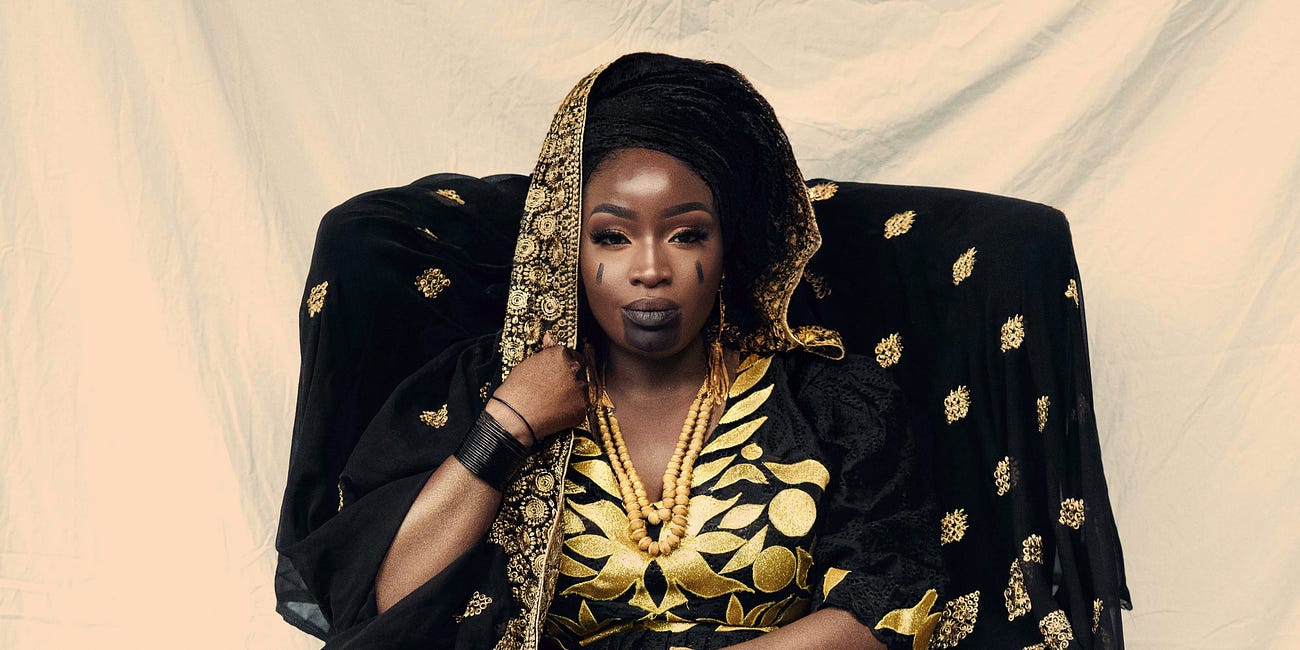
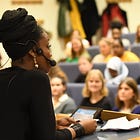


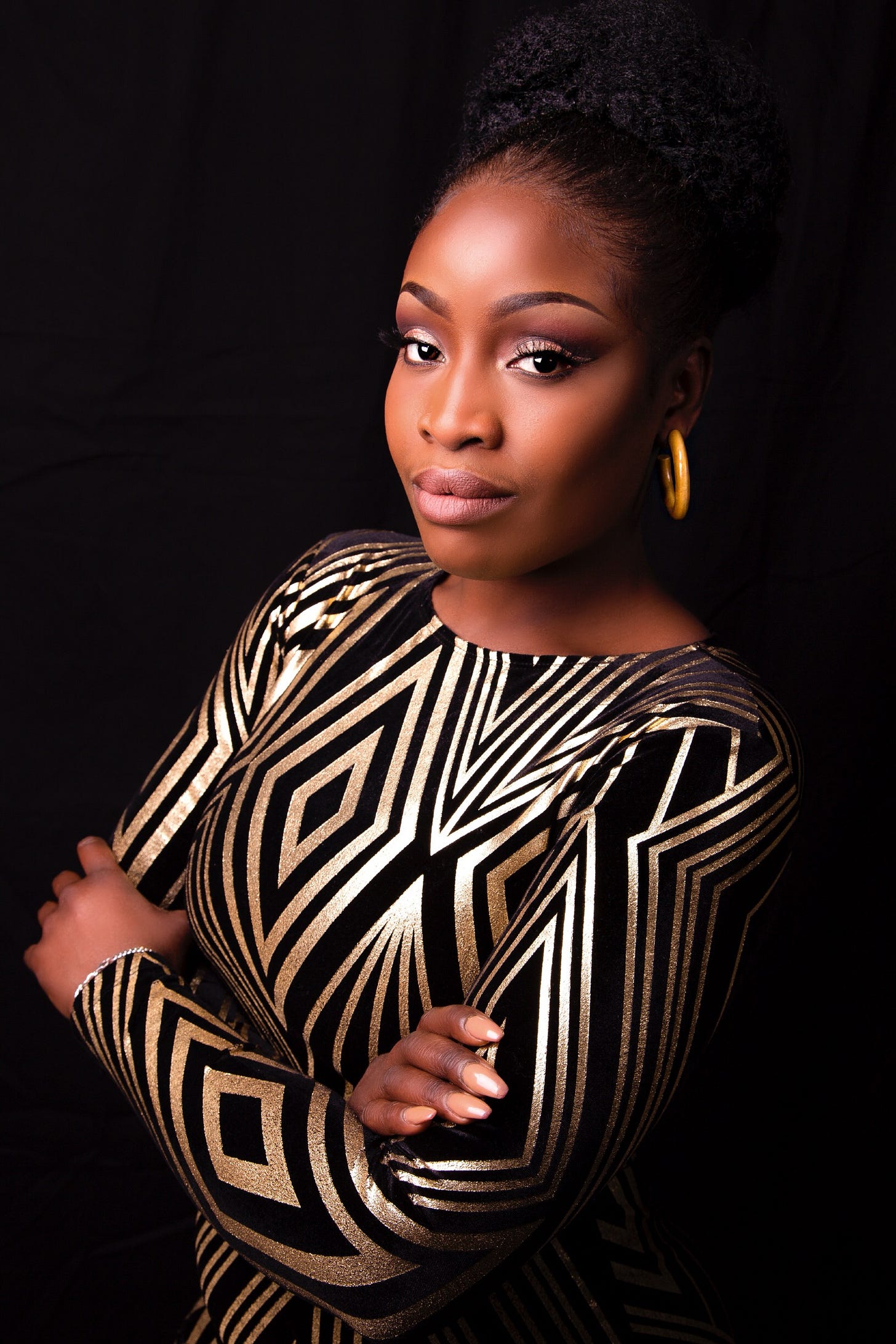
This piece is full of deep wisdom, thank you. For so long I have wished for friends like these, who see and challenge me to grow as much as they offer comfort and distraction. It's only recently I realised that the best way to find those friends is to be that friend, to be braver at speaking truth in my relationships. Each small step into that space has been healing for me and is slowly helping me find those people. Your writing gives me fuel for continuing on this path.
this was beautiful, illuminating, rich in storytelling nuance and care. thank you!